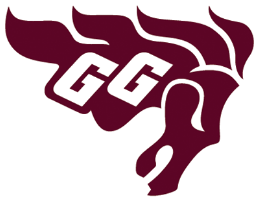Gee-Gees athletes form Black Student-Athletes Advocacy Council
The Black Student-Athletes Advocacy Council at the University of Ottawa is one of the few of its kind in Canadian university athletics.
In light of events that transpired around the world and at the University of Ottawa in the last twelve months, a group of Gee-Gees student-athletes have come together to form the Black Student-Athletes Advocacy Council.
The concept of forming a group to increase BIPOC representation and foster equity in the Varsity Athletics department was initially devised by members of the women's rugby program. Players Kennedy Banton-Lindsay and Ketsia Kamba reached out to members of the uOttawa varsity community to start what has turned into the BSAAC.
"We're a group that works with varsity athletics to ensure the best environment possible for athletes and staff," said Banton-Lindsay, one of the Council's Co-Presidents.
"As athletes, we understand that you can only get better if you're acknowledged – your weaknesses and your strengths," said Borys Minger, a men's basketball player who serves as the other Co-President. "I'm really hoping this Council will always be able to honestly acknowledge the weaknesses and the strengths of the varsity administration, and the university as well."
The Black Student-Athletes Advocacy Council at the University of Ottawa is one of the few of its kind in Canadian university athletics. A similar group was formed at the University of Toronto, and they were instrumental in helping their counterparts based in the Nation's Capital get organized.
The uOttawa BSAAC has created roles for their group, including Presidents, Finance Officers and a First Nation Liaison, among others. By establishing positions with clear responsibilities, the current members of the BSAAC are striving to make it sustainable for future generations of Gee-Gees student-athletes.
"We want to do something that is going to last," said Yvan Mongo, a third-year student-athlete and captain of the men's hockey program and one of two External Communications Officers. "Even when we graduate, the specific jobs will have a description, so you know what you're doing for the Council – it doesn't matter if it's me or someone else that's doing it."
"My name might be associated as the President of this Council, but it's much, much bigger than I am, or anyone that's part of it right now," said Minger, a fourth-year studying finance.
Just prior to the 2020-21 holiday break, members of the BSAAC were invited to meet with the University's Administration Committee to share their concerns, and later in February met with the co-chairs of the uOttawa's Action Committee on Antiracism and Inclusion. The Committee was established in November 2020 with the mandate of promoting inclusion of BIPOC members at all levels of the university community.
"It was good that they got to see our faces and meet with us," said Mongo. "They were really open-minded and took the time to hear us and listen to what we had to say. We were given the green light to proceed with our endeavours to try and bring change."
"This is still a project that is being built, the relationships are just being created," Minger explained. "We would like to volunteer ourselves to be partners in this change."
The meeting also served as an introduction for the Council into how difficult it can be to achieve what they are striving for, especially at a post-secondary institution.
"There is a lot of bureaucracy, it's really not that simple to implement policy change," said Mongo. "But I think the meeting was really good because we got the opportunity to see how things work at the highest levels and we have an idea of how we can approach this in the next few months."
In the short term, the BSAAC is aiming to increase its visibility on the uOttawa campus. They are in the process of designing a logo and setting up social media accounts. Plans are being made to reach out to Gee-Gees alumni who would be interested in potentially contributing to the Council in some way.
Following conversations with the group and aligning with the recommendation of the BSAAC, the Varsity Athletics department is now providing mandatory anti-racism training as part of the annual student-athlete orientation. Every athlete has also received a Black Lives Matter t-shirt to mark the beginning of an increased collaboration and focus on equity, diversity and inclusion that ensures a true culture of acceptance throughout Varsity Athletics.
"The best thing is people challenging your opinions and making you grow," said Banton-Lindsay. "I wouldn't be the person I am today without meeting these people. We wouldn't have the success of this Council without these people.
"It's all about growth, and even in the tough times, being resilient and having people to lean on."
Varsity Athletics doing its part
Since the summer, while student-athletes were mobilizing which lead to the creation of the BSAAC, the Varsity Athletics department has also been doing its homework. In addition to its ongoing participation in league and national initiatives for anti-racism and racial justice, a working group comprised of BSAAC representatives, coaches and administrators was struck to lead the creation of an action plan set to be presented to the University of Ottawa's senior administration later this Spring.
Black Student-Athletes Advocacy Council Executive
Kennedy Banton-Lindsay, Women's Rugby, BSAAC Co-President
Borys Minger, Men's Basketball, BSAAC Co-President
Brigitte Lefebvre-Okankwu, Women's Basketball, Secretary
Yvan Mongo, Men's Hockey, External Communication Officer
Elias Hancock, Men's Rugby, External Communication Officer
Ketsia Kamba, Women's Rugby, Internal Communication Officer
Daniel Oladejo, Football, Marketing Officer
Emmanuel Aboagye-Gyan, Football, Marketing and Events Aid
James Peter, Football, Marketing and Events Aid
Frednick Eveillard, Football, Finance Officer
Nathan Walker, Football, Engagement and Events Officer
Mayhève Rondeau, Swimming, First Nations Liaison

